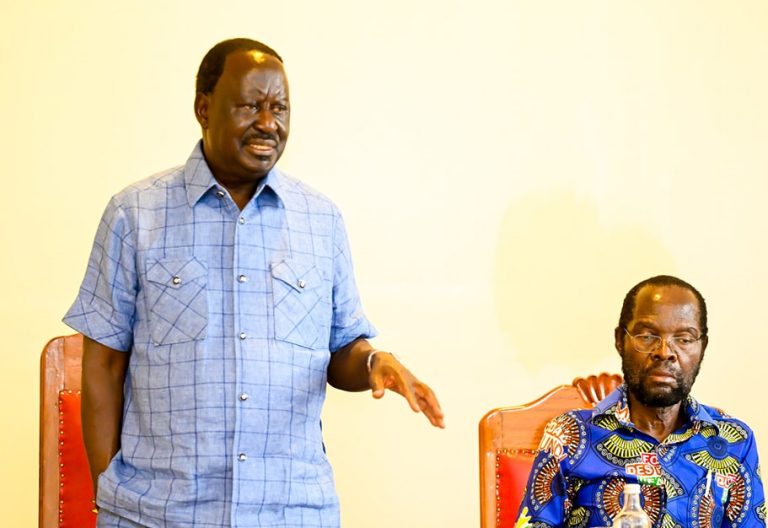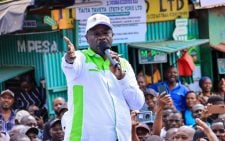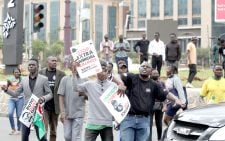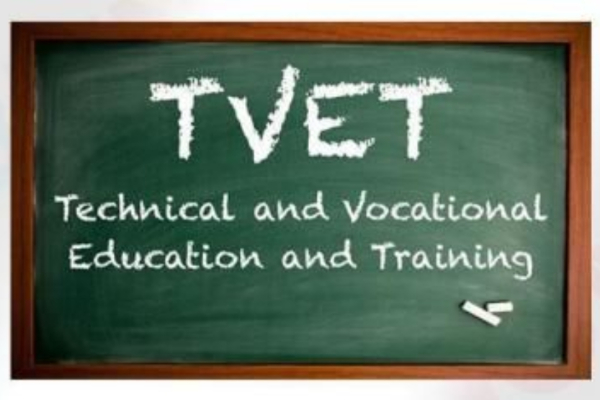Raila factor confounds murky Kenyan politics

Raila Odinga has once again proved that he continues to be the most influential politician in Kenya, around who the nation’s murky politics revolves.
Just days after his unsuccessful bid for the African Union (AU) Commission chairperson’s seat in Addis Ababa, Ethiopia, Raila returned home to send tongues wagging about his next move.
President William Ruto personally shepherded Raila’s State-sponsored campaign for the top AU job. Win or lose, Raila was bound to influence the political fortunes of those in both the government and within the Opposition.
As he prepares to make a major statement on his next steps, one thing is certain. Whatever decision he makes, it is going to play a determining role in the 2027 elections, both for his old allies in the Opposition and his nemesis-turned friends in government.
Adept at performing his political manoeuvres with unrivalled bravado and a hint of mystery and unpredictability, Raila is comfortable whether in his traditional Opposition territory or within government ranks.
What has confounded his critics and supporters alike is his decision to disembark from the Opposition bandwagon that he has for years used as his vehicle in presidential elections, including the last one in 2022 that pitted him against Ruto.
To keen observers, however, there are no permanent friends or enemies in the fluid and treacherous Kenyan political terrain. After all, Raila and Ruto have come a long way.
There was the unheralded union between his then National Development Party (NDP) and the then ruling Kanu party during President Daniel arap Moi’s era. Then there was the reunion in the Orange Democratic Movement (ODM) just before the 2007 elections.
They parted company after the acrimonious disputed presidential election led to violence, deaths, destruction and displacements that saw Ruto and former President Uhuru Kenyatta put on trial at the International Criminal Court at The Hague.
The court did not convict them of the charges of crimes against humanity and they teamed up to defeat Raila in the disputed 2013 and 2017 elections.
Tables turned in the 2022 elections when Uhuru completed his term and threw his weight behind 2018 “handshake” ally Raila, against his then estranged deputy Ruto, who narrowly won another disputed election.
Right now, Raila appears to be firmly on course to assert his dominant presence and gain more influence in Ruto’s administration, where he has planted his prominent allies in key Cabinet positions after Ruto fell out with his former deputy Rigathi Gachagua.
Raila’s cozy position within the ruling circles came after he “rescued” the besieged President’s government from imminent collapse following popular youth-led Gen Z protests last year against harsh economic policies in the dumped Finance Bill, 2024.
The Gen Z protests that were brutally suppressed by State security agencies, raised many outstanding issues that the Ruto administration is yet to adequately address, including police brutality, extrajudicial killings and other human rights violations.
Combined with corruption, youth unemployment, poverty, high cost of living and shambles in the health and education sectors, Ruto’s government shoulders the blame more than Raila and his new allies.
Yet his latest moves to support the ruling has baffled and disappointed legions of supporters long used to his courage in leading the fight for people’s rights.
Whether the “orphaned” Opposition ranks minus Raila will muster the massive Gen Z wave to counter the increasingly likely Ruto-Raila juggernaut remains to be seen.
— The writer comments on national politics; albertoleny@gmail.com













